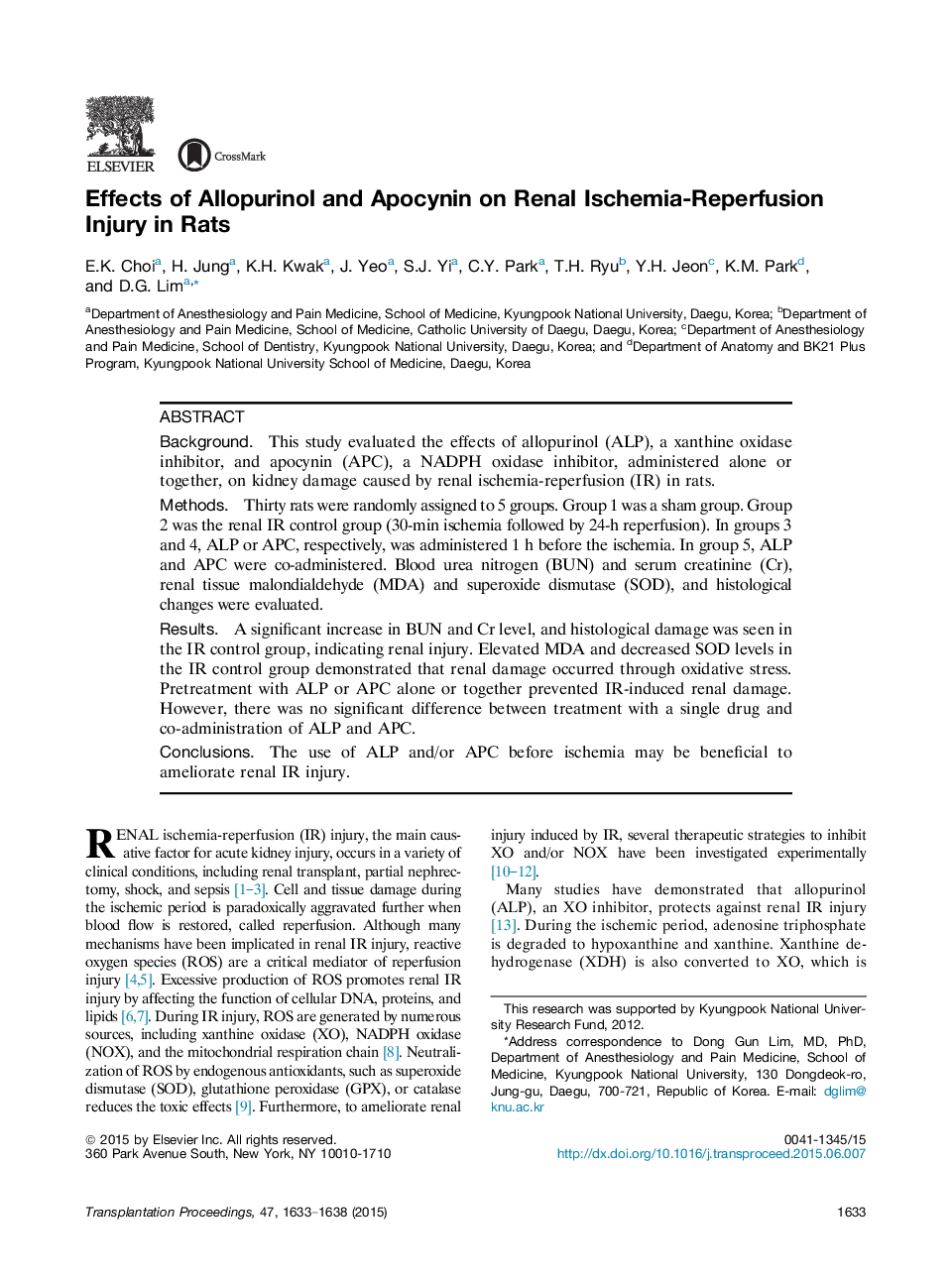| Article ID | Journal | Published Year | Pages | File Type |
|---|---|---|---|---|
| 6247117 | Transplantation Proceedings | 2015 | 6 Pages |
â¢Allopurinol attenuates renal ischemia reperfusion injury.â¢Apocynin protects against renal ischemia reperfusion injury.â¢Allopurinol and apocynin inhibit reactive oxygen species through different mechanisms.â¢The protective effects of co-treatment were similar to those of single treatment.
BackgroundThis study evaluated the effects of allopurinol (ALP), a xanthine oxidase inhibitor, and apocynin (APC), a NADPH oxidase inhibitor, administered alone or together, on kidney damage caused by renal ischemia-reperfusion (IR) in rats.MethodsThirty rats were randomly assigned to 5 groups. Group 1 was a sham group. Group 2 was the renal IR control group (30-min ischemia followed by 24-h reperfusion). In groups 3 and 4, ALP or APC, respectively, was administered 1Â h before the ischemia. In group 5, ALP and APC were co-administered. Blood urea nitrogen (BUN) and serum creatinine (Cr), renal tissue malondialdehyde (MDA) and superoxide dismutase (SOD), and histological changes were evaluated.ResultsA significant increase in BUN and Cr level, and histological damage was seen in the IR control group, indicating renal injury. Elevated MDA and decreased SOD levels in the IR control group demonstrated that renal damage occurred through oxidative stress. Pretreatment with ALP or APC alone or together prevented IR-induced renal damage. However, there was no significant difference between treatment with a single drug and co-administration of ALP and APC.ConclusionsThe use of ALP and/or APC before ischemia may be beneficial to ameliorate renal IR injury.
